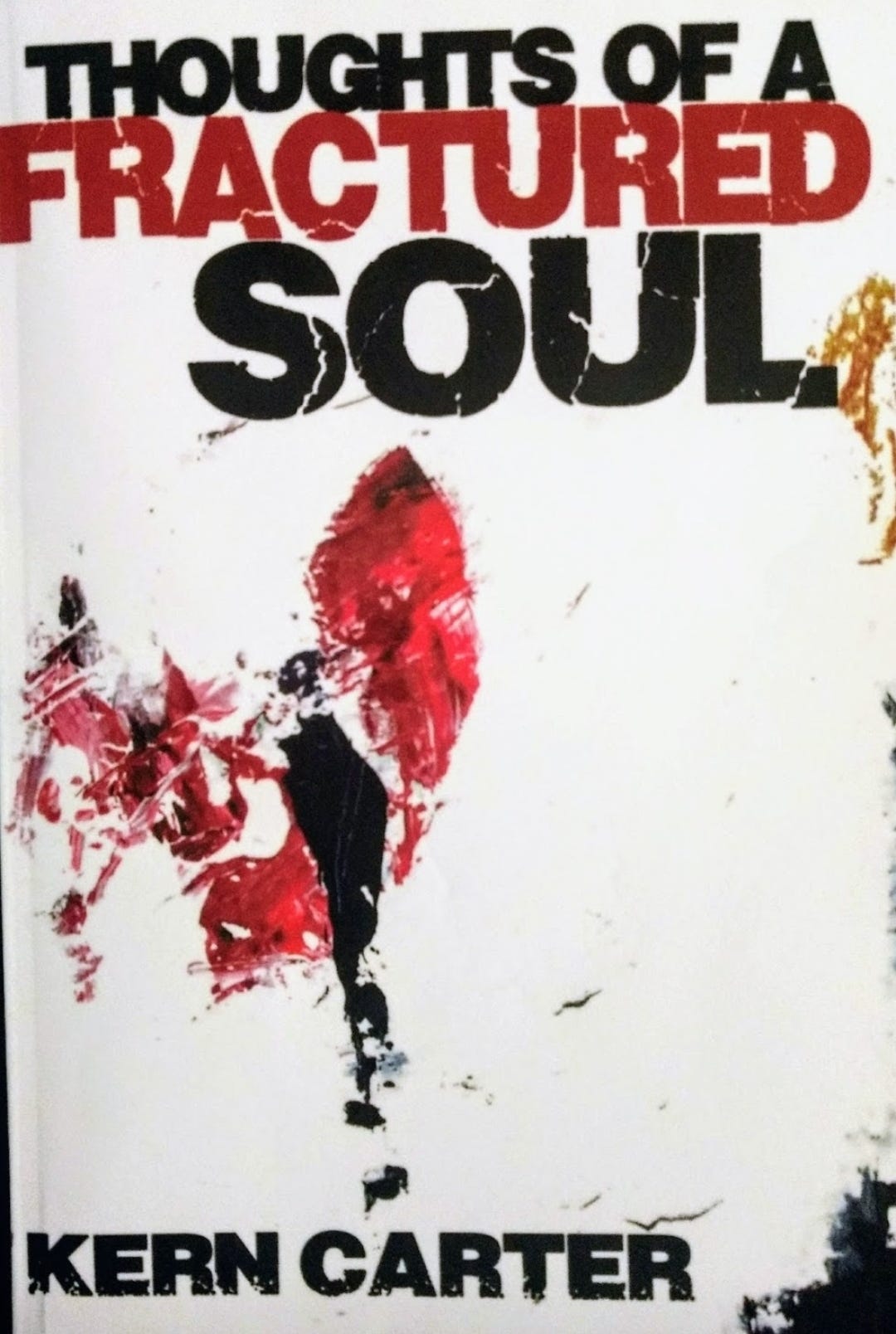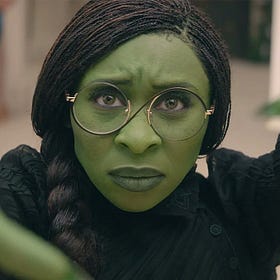
By now, I’m sure you’ve heard something about the Snow White movie mess, right? I’m not going to go into details about it because there’s been enough written about that already. What I will say, though, is reading about all that drama brought up a far more significant fear about storytelling in this era:
How closely do we tie ourselves as individuals to our creations? Or put another way, is our content perceived by our likeability or the actual content?
It’s a question I think we take for granted. Look how many of us are on Substack right now, our real names attached to our publications, sharing parts of ourselves with whatever number of subscribers we have. There’s such a risk to this level of accessibility and vulnerability that I’m not sure gets discussed enough.
The reason the Snow White thing made me think of this is because it took one person to essentially sour the public on an entire film. Yes, she was the star, but there are hundreds of people that worked on a film of that proportion, and part of the reason stars get paid as much as they do is because they are expected to bring their followers to the box office and also behave appropriately when promoting the film.
None of that happened with Snow White, and if we’re to believe the multiple media sources, it was primarily the fault of Rachel Zegler.
But bringing that back into our world of literature, do we even stop to think about how much our success depends on our likeability as individuals versus how much the audience likes the work? How heavily is the former tied to the latter right now?
I think about myself during my self-published days. I fought so hard to keep myself separated from my novels. I didn’t write about my life publicly or talk much about anything that wasn’t in the books themselves. Especially with my first book, the story was so close to my life that it would’ve been easy for me to put everything out there, but I was nervous about that, at least at first.
My reasoning was that the story was strong enough on its own, and if I could somehow sell people on the merits of the book, they wouldn’t need to know anything about my personal life. Why should my real life matter anyway?
But I slowly started to realize that my books weren’t enough. Once I made that acknowledgement, I started a blog called CRY. With that blog, I was all the way vulnerable. I called it CRY because crying is the only action that represents almost every emotion, meaning you cry when you’re happy, sad, angry, frustrated, and so on. It was my way of indicating that I would be sharing stories that touched on all the emotions.
And it worked.
The short version of this story is that the large majority of people who know me for my writing know me because of CRY. It’s where I built my first following, my first real readership, and many of those readers still follow me to this day. When I made the transition to Substack, I wasn’t starting on zero. I had thousands of people who already knew me and it's been an incredible relationship for which I can’t begin to describe how grateful I am.
But it does come at a cost.
Nearly my entire life is on display through my writing. That means my daughter’s entire life is on display through my writing. In her case, she didn’t have a choice, and although she says she’s totally fine with it, I’ve severely reduced how much I share about her because she’s 22 years old now and what she chooses to share should be her own choice and in her own voice.
For me, it means that the expectation is that I continue with this level of vulnerability. Even as I tried my best to transition away from personal stories with this newsletter, every time I pepper them in there, the response is always incredible.
But then I think about writers like Elena Ferrante and artists like Kendrick Lamar. Ferrante has no social media presence at all and Kendrick only posts his music and rarely does interviews, especially since 2017. Same with an artist like The Weekend, who is literally the most popular artist on Spotify right now, but I dare you to find three full interviews with him.
Then I inherently wonder: do I need to be doing all of this?
It felt like this was the only path. That putting my life out there was what it would take to reach my goals as an author. But now that I’m out here, things can feel fragile. I’ve already had some people come at me on Substack for pieces I wrote. My Wicked piece, in particular, has drawn some criticism, one so harsh that I had to block them (I’ve never, ever blocked anyone before that, not even on my phone).
The hypocrisy of Wicked
By the time you read this, the movie Wicked would have been released and likely earned the number one spot at the box office. Wicked is an adaption of the 2003 musical, which in itself is an adaption of the 1995 Gregory Maguire novel with the same title, which in turn is taken from the 1939
That harsh (disrespectful) comment really affected me. Being liked is not super important to me, but being respected certainly is. And that level of disrespect was angering, and the only reason that person felt comfortable enough to write those words was because that Wicked piece included personal opinions; my personal opinions. Wicked was essentially a gateway for my commentary on an aspect of current cultural behaviours. These were my personal thoughts but on display for everyone to judge, and judge they did.
When I was writing on my previous blogs, I found myself defending parts of who I was or my values on more than one occasion. People questioned my manhood, questioned my “blackness,” questioned my values. It’s not a pleasant experience, but it comes with the territory, right? You share your life, people are going to pick it apart.
But what if I cross a line that goes too far? How thin is this ice I’m on? Because as Snow White is showing us, along with so many other examples, one wrong statement and there goes my readership, the one I took years to build up. I would hope my readers would be more forgiving. Many of them send me emails that are so encouraging that I feel like they know me so well, and to an extent, they do. But will all that go away if I say something they truly don’t like?
Nowadays, it’s not enough for a book to go viral, the author must be viral, as well. Ask Colleen Hoover how she feels about that. Yes, she’s sold tens of millions of books, but her life has been so tediously scrutinized that she had to remove herself from social media and says that the scrutiny has made writing books unenjoyable. Forget if her actions were right or wrong. If anyone’s life was dissected piece by piece, you can bet something will be found, and that something won’t be positive.
But when you voluntarily put your life on display, you’re inviting an audience inside to pick it apart, flaws and all. And it’s the flaws that you’re hoping makes you seem like a real person, someone who is just like them. But again, this is a risky game and it’s time we start having more conversations about whether or not the reward is worth it.
How do you feel about this? About sharing your life with your readers in hopes of building community, a community that will support your career?






Thank you for this thoughtful post, Kern. I agree with much of this. To some degree, it's simply about how creatives make their audience feel. Do readers feel a connection? Do they see a part of themselves in our work, our story, our message? I've been in the author world for over a decade and I can recall many a book signing or author panel where certain authors remained private, but brought an open and enthusiastic energy to the event, thus creating community with their readership. I've also seen the opposite. So, in this regard, I think it's less about what is said, and more about how it's said. My guess is you could share less and still leave your readers to feel connected because of your good and authentic energy.
"...do we even stop to think about how much our success depends on our likeability as individuals versus how much the audience likes the work? How heavily is the former tied to the latter right now?..."
For writers, that has always been the case. It was particularly true in the 19th century, when people like Charles Dickens, Mark Twain and Oscar Wilde were attacked in public for doing things or allegedly doing things that had nothing to do with their writing, which damaged how they were seen by others in their time and afterwards. Particularly, Wilde being "outed" as a homosexual at a time when it was considered an illegal and scandalous mental illness meant that his work could not be viewed objectively by others for many years- and, of course, none of his stories and plays actually depicted homosexuality...
Neil Gaiman would be a modern example of this kind of condemning, although, again, what he did off the page had nothing to do with what he did on it. And there was a reason why he became successful to begin with...
Of course, my case is a little different than others viewing these things, since, as a historian, I view things on a long timeline and know that work has to be objectively (apart from the author's life) to take it seriously. But that attitude doesn't seem to exist anymore outside of academia; it's more fun for people to pile on those with damaged reputations anonymously as part of an Internet mob.